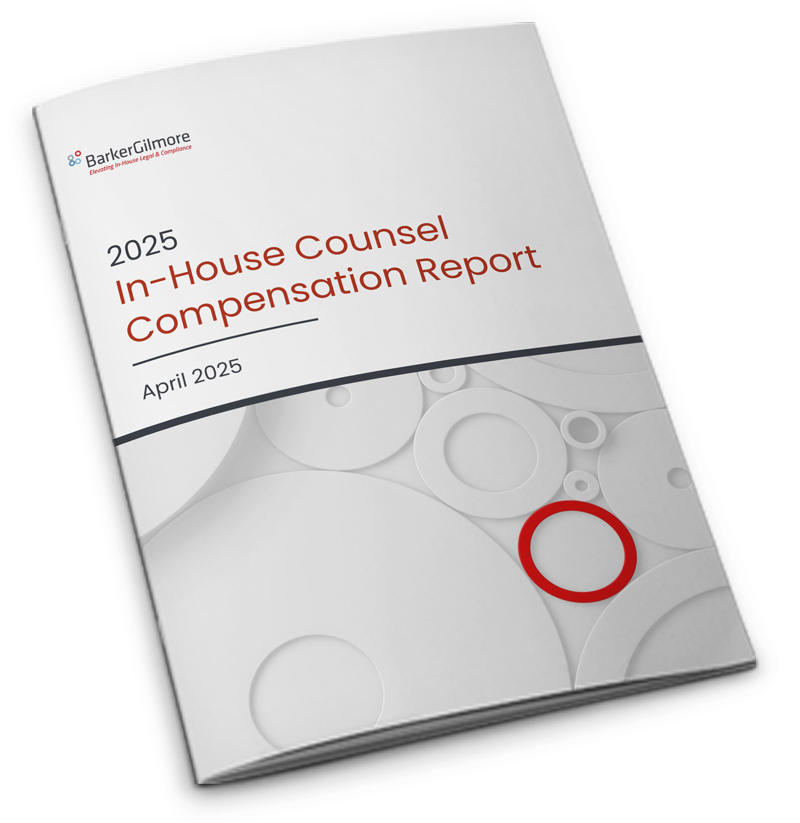The General Counsel is a critical member of the executive leadership team, and hiring the wrong person is a costly mistake.
Even the most skilled interviewers can have difficulty assessing candidates for this position if they don’t know what to ask. Competency questions need to be customized for the unique skill set required for the position, the industry the company operates within, the circumstances surrounding the need for a new executive and the business goals and objectives of the executive team.
If your company is facing a regulatory issue, you may need to hire General Counsel with industry-specific regulatory or litigation experience. If your company is preparing to go public or significantly grow through acquisitions you may want someone with a more extensive corporate law background.
No matter what the scope of the General Counsel position, these five questions offer important insight into the competency of your candidates. Here’s a look at what to ask and what to listen for in your candidates’ responses.
1. What types of matters require you to seek outside counsel?
Why it matters: Although the workload has increased, legal department budgets have largely remained stagnant. Some are even shrinking. Your next General Counsel needs to make the most of your in-house resources and set appropriate priorities for delegating responsibility to outside counsel when it’s most cost-effective.
What to listen for: The ideal candidate follows an established framework for determining when to hire outside counsel. This may include matters that require highly specialized regulatory expertise or a substantial risk. The candidate should be mindful of the department budget, understand how to source appropriately and use technology such as electronic billing wherever possible to reduce legal spending.
2. Discuss the most complex legal issues you have faced. What was your strategy for solving the problems and what was the outcome?
Why it matters: You need to gain an understanding of how the candidate will handle potential issues at your company.
What to listen for: Examine how the candidate works with key stakeholders to develop a strategy. While the candidate should take an authoritative stance on the matter, it can be problematic if he or she makes important decisions without seeking input from others. If the topic was unfamiliar, how did the candidate research it? No legal professional has all the answers, but any competent professional knows where to find them.
3. How have you helped to control costs or reduce outside spending in the law department?
Why it matters: As companies increasingly focus on efficiency, they place more emphasis on in-house legal counsel, unbundling services, using smaller firms more often and keeping a close eye on alternative fee arrangements.
What to listen for: Your next General Counsel hire should offer strong recommendations in this area based on practical experience. The right candidate is well aware of ways to reduce spending and may even use benchmarking practices to compare spending at the company to legal spending elsewhere.
4. What has your interaction been with various regulators?
Why it matters: Your General Counsel is likely to receive requests from various types of government agencies. He or she must determine the scope of these requests and provide all required information in a timely manner. Failure to do so can result in fines for your company and obstruction charges. The case of former GlaxoSmithKline associate General Counsel Lauren Stevens, who was later acquitted, serves as a cautionary tale of what can happen when there is even the perception information has been withheld.
What to listen for: Your next General Counsel must be unflinching in the face of scrutiny. Look for someone who has worked with regulators in a variety of areas and has a reliable system for maintaining important documents.
5. What is your risk tolerance? Have you made a legal decision you have come to regret?
Why it matters: The General Counsel must be unafraid to face the fallout of difficult decisions, whether they involve dealings with regulators or simply taking a stance unpopular within the company. Someone who has been in the industry long enough has no doubt faced these stressful situations.
What to listen for: If the candidate offers a specific example, he or she should be able to demonstrate an important lesson learned from that situation and show that it resulted in change. A candidate who has no regrets may not be taking an honest inventory of the impact of his or her decisions.
An interview that includes these five questions should give you a more comprehensive understanding of your candidate’s key competencies, but these are not the only important questions to ask. Any effective assessment should also cover questions that reveal behavioral traits, such as loyalty, honesty and integrity, as well as leadership ability.
The General Counsel is an indispensable member of your executive leadership team, so the position demands a thorough examination of your final candidates. For more assessment tactics and specific behavioral questions to ask when recruiting General Counsel, download our free guide, “8 Ways to Effectively Assess Legal and Compliance Candidates.”
Connect with a legal recruiting advisor
* indicates required fields



